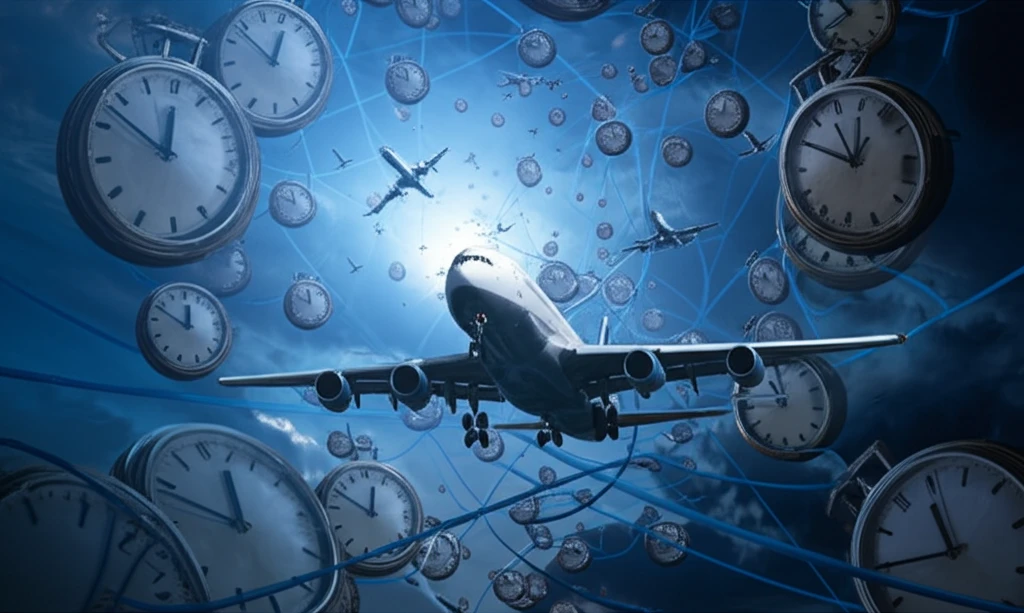
Decoding Flight Delays: How Competition Impacts Your Travel Time
"A deep dive into the competitive factors influencing airline delays, revealing how airline competition, market dominance, and low-cost carriers affect your flight schedule."
Flight delays have become an all-too-familiar aspect of modern air travel. Whether it's a minor setback or a major disruption, delays can cause stress and inconvenience for passengers worldwide. While factors like weather and mechanical issues often get the blame, a deeper look reveals a complex web of competitive forces at play.
Understanding these competitive dynamics is crucial for both travelers and the airline industry. By examining how factors like airline competition, market concentration, and the emergence of low-cost carriers (LCCs) affect flight schedules, we can gain insights into potential solutions for minimizing delays and improving the overall travel experience.
This article delves into a comprehensive analysis of the competitive determinants of flight delays, drawing upon recent research to explore the interplay between local and global factors. We'll uncover how airlines respond to competitive pressures, the impact of market dominance on airport efficiency, and the surprising effects of LCCs on established carriers.
The Competitive Landscape and Flight Delays: What's Really Going On?

Traditionally, studies have examined factors causing flight delays by splitting them into either originating at the airport or those happening en route. However, a more comprehensive approach considers both local and global effects of competition. This approach acknowledges a phenomenon known as "internalization of externalities," where an airport's congestion is greatly influenced by competitive strategies.
- Market Concentration: High concentration can sometimes lead to complacency. If one or two airlines dominate a route or airport, there may be less incentive to invest in on-time performance.
- Competitive Pressure: Increased competition often forces airlines to improve efficiency and reduce delays to attract and retain customers. This can lead to better scheduling and resource allocation.
- Low-Cost Carrier (LCC) Impact: The entry of LCCs can disrupt the market, forcing traditional airlines to adapt. This might involve streamlining operations, which can, in turn, affect flight punctuality.
The Future of On-Time Flights: What Can We Expect?
The research indicates that competition significantly influences airline behavior concerning punctuality. As the aviation industry continues to evolve, understanding these competitive dynamics will be crucial for airlines, policymakers, and travelers. By promoting healthy competition and addressing airport congestion, we can strive towards a future with fewer flight delays and a smoother travel experience for all.
